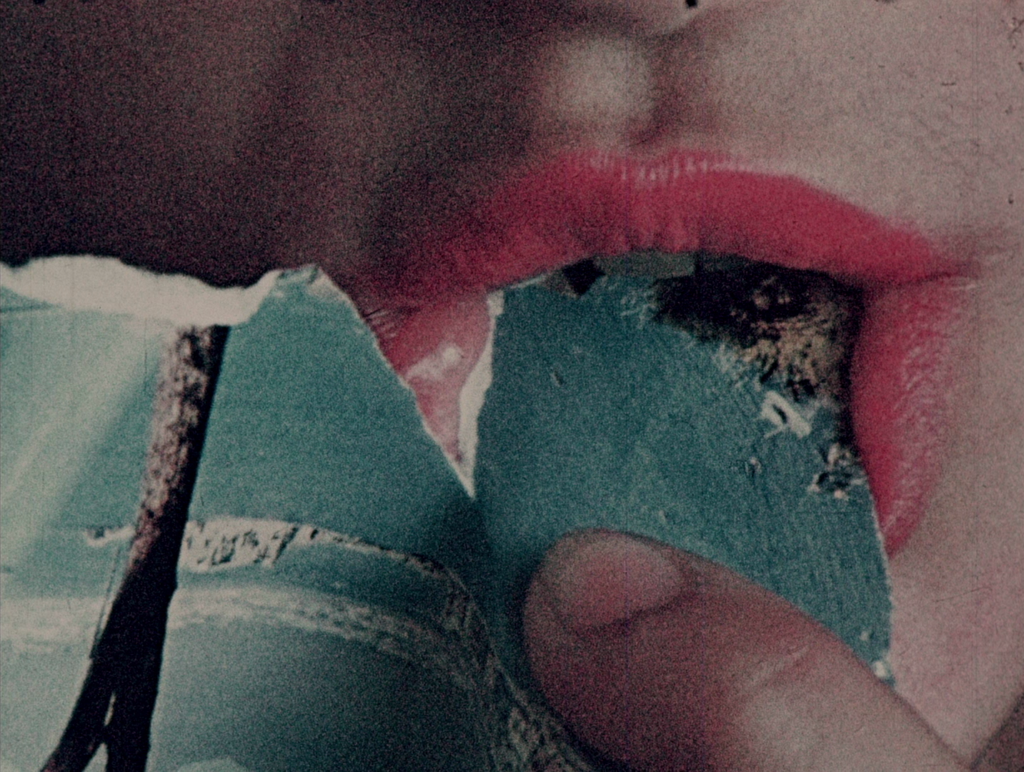
Canciones Napolitanas(1971) by Narcisa Hirsch
Thursday, November 21, 2024, 7:30 pm
Philosophy Is a Useless Passion
Films of Narcisa Hirsch
Presented in association with The Lab
Visit our Facebook Event Page
Admission: $15 General / $12 Cinematheque Members
Event tickets here
Download Program Note
The freedom of working with very little money is the freedom from having to sell, it is the freedom of working at home and by hand, without big crews or sets. Nor any time constraints. One shot is taken per day, or one per year. Each one chooses their time and space. For that reason, and for everything else, experimental film is a subversive art, more so than documentary or political cinema. More subversive than intellectual or conceptual cinema. Which is why so few go into it, and even fewer stay. —Narcisa Hirsch
Narcisa Hirsch (1928–2024) was a German/Argentine filmmaker—based in Buenos Aires since 1935—who haunted the margins of international underground film culture for seven decades, during which she also created elaborate happenings and performative interventions into urban culture. Hirsch worked primarily in film however and, in both Super-8 and 16mm formats, produced a staggering body or over sixty individual works—which explored intertwined themes of eroticism, female identity, Argentine culture and politics while engaging with avant-garde film traditions, working collectively with a small group of Buenos Aires artists while engaging in collaborations and artistic dialog with artists including Werner Nekes, Claudio Caldini, Horacio Valleregio, Marie Louise Alemann, Michael Snow and the dissident documentary filmmaker Raymundo Gleyzer. An avid film collector, Hirsch shared prints by Carolee Schneemann, Stan Brakhage and Michael Snow (among others) at screenings in Buenos Aires underground spaces, further influencing that city’s independent film culture. Hirsch’s own work is currently being preserved by the Filmoteca Narcisa Hirsch. Having been recognized in major retrospectives at venues including Museo de Arte Latinoamericano de Buenos Aires (2023), Viennale (2012 & 2022) and Documenta Madrid (2017), Hirsch’s work has been very rarely screened in the US. In celebration of the life of Narcisa Hirsch, Cinematheque proudly presents a retrospective sampler of the filmmaker’s works, 1969–1984.
Special thanks in support of this program is extended to Media City Film Festival and also to Tomas Rautenstrauch, Director of Filmoteca Narcisa Hirsch.
SCREENING:
Taller/Workshop (1974) by Narcisa Hirsch; color, sound, 11 minutes.
Manzanas (1969) by Narcisa Hirsch; color, sound, 5 minutes.
A Dios (1989) by Narcisa Hirsch; color, sound, 26 minutes.
Canciones Napolitanas (1971) by Narcisa Hirsch; color, sound, 10 minutes.
Rafael, Agosto de 1984 (1984) by Narcisa Hirsch; color, sound, 12 minutes.
Orfeo y Euridice (1976) by Narcisa Hirsch; color, sound, 12 minutes.
All films 16mm screened as digital video. All exhibition files courtesy of Filmoteca Narcisa Hirsch.
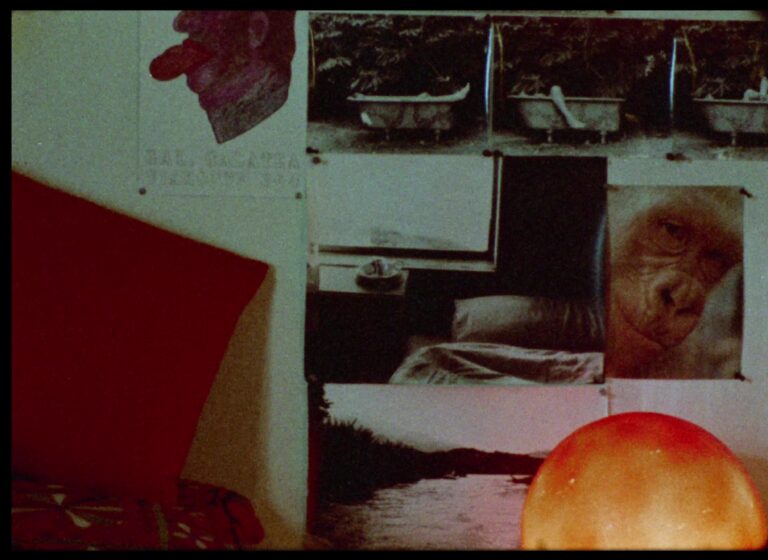
Taller/Workshop (1974) by Narcisa Hirsch
A still image on the wall of Narcisa Hirsch’s workshop. While they are having tea, Narcisa describes to Leopoldo Maler, first what one can see on that wall, then what is out of frame. The description, as a voiceover, tours the entire room, finally returning to the wall where the story began. (Filmoteca Narcisa Hirsch)
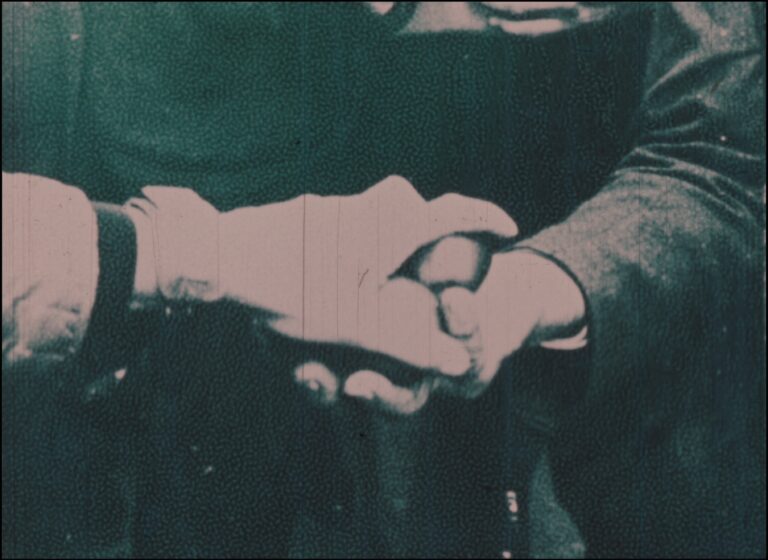
Manzanas (1969) by Narcisa Hirsch
Documentary recording of a happening in which Narcisa, Marie Louise Alemann and Walther Mejía handed out hundreds of apples to people walking past the corner of Florida and Diagonal Norte in the city of Buenos Aires in 1968, under the premise of: “This apple is different from an everyday one / we are doing a work with the people / the work is the shared moment.” (Cecilia Barrionuevo, Viennale 2023 Catalogue)
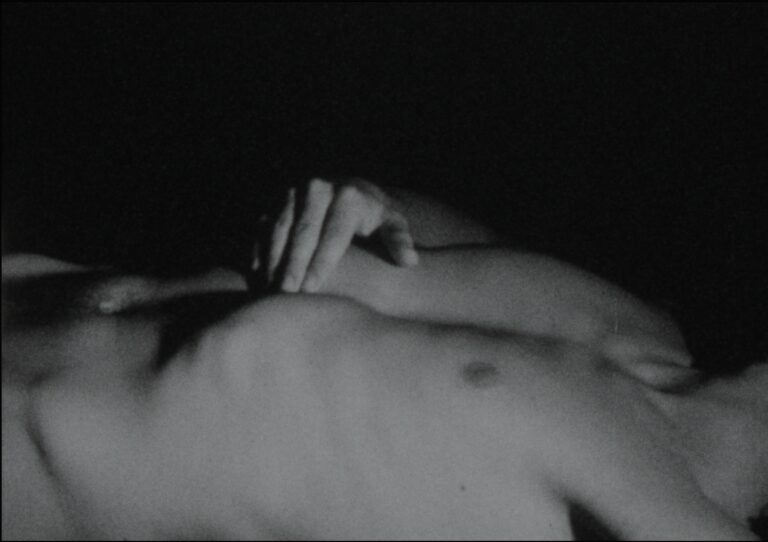
A Dios (1989) by Narcisa Hirsch
A Man returns from war defeated; he returns home. It is the end of battles and ideologies. According to Susana Balán (therapist and writer), there are three archetypes of masculinity: (1) the heroes, who are young, rebellious people who question the power of the gods; (2) the gods, who have been young and were able to remain powerful into adulthood and (3) the men, who are the majority; those who do not question society nor need to dominate it; the ones who concentrate on their work and their family. Narcisa added a fourth one to these three archetypes: the alchemists, the artists summoned to recreate the world and who are therefore marginalized, transmuting matter and making the invisible visible. (Filmoteca Narcisa Hirsch)
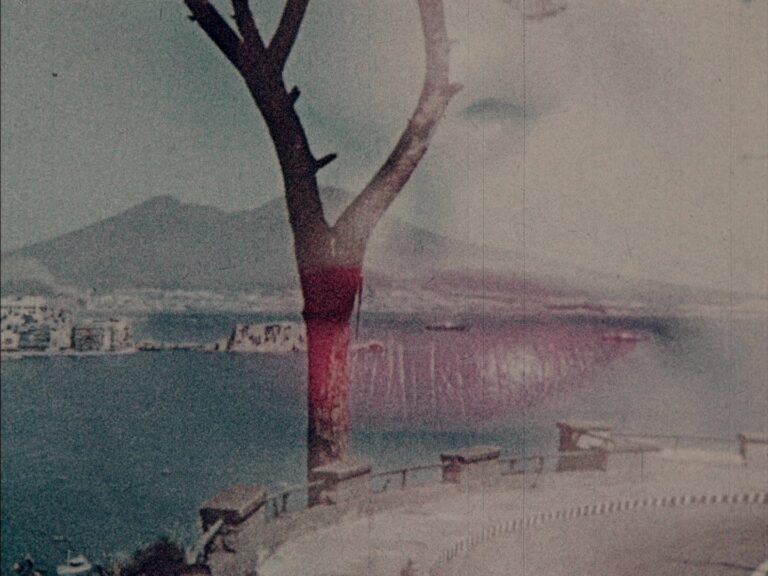
Canciones Napolitanas (1971) by Narcisa Hirsch
A mix of abstract images and, as if emerging from a Man Ray painting, a large mouth in the foreground with red-painted lips slowly devours a raw liver, then goes on to eat a postcard. Meanwhile, romantic Neapolitan songs can be heard in the background. As Andrea Giunta says, “At the same time, they function as a hyperbole of the feminine in a register impregnated with pop aesthetics (they are perfect lips and makeup), but in which the flesh introduces an element of profound transgression, with eschatological tensions.” (Cecilia Barrionuevo, Viennale 2023 Catalogue)
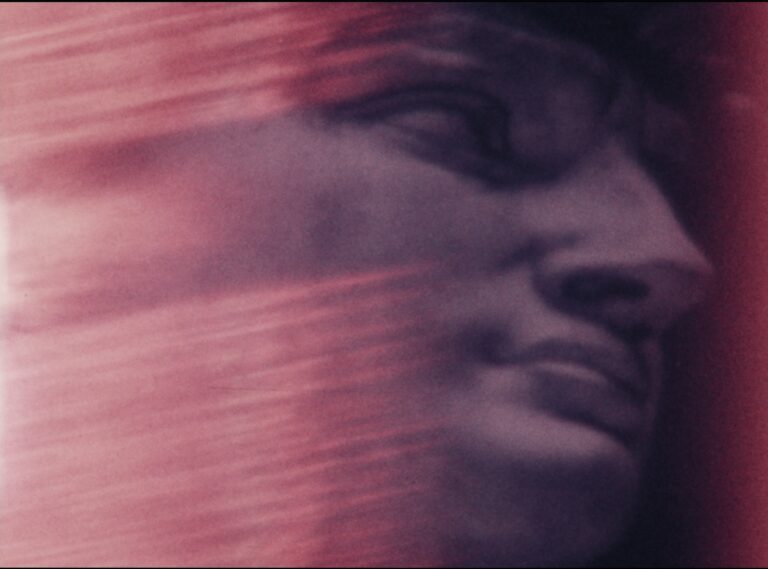
Rafael, Agosto de 1984 (1984) by Narcisa Hirsch
“I was very happy with you, and now the reeds bow over the waters. There is no nostalgia.” On Rafael Maino’s birthday, Hirsch creates a letter-film using images they shot together in Patagonia and while traveling through Chile and Brazil, as well as images of bodies (above all male ones) that she thought he would be attracted to. The soundtrack shows Hirsch reflecting on their tumultuous relationship over seven years. Rafael, August 1984, is part of a special universe in Hirsch’s filmography, along with Raphael 1975 (1975) and Orpheus and Eurydice (1976). (Cecilia Barrionuevo, Viennale 2023 Catalogue)
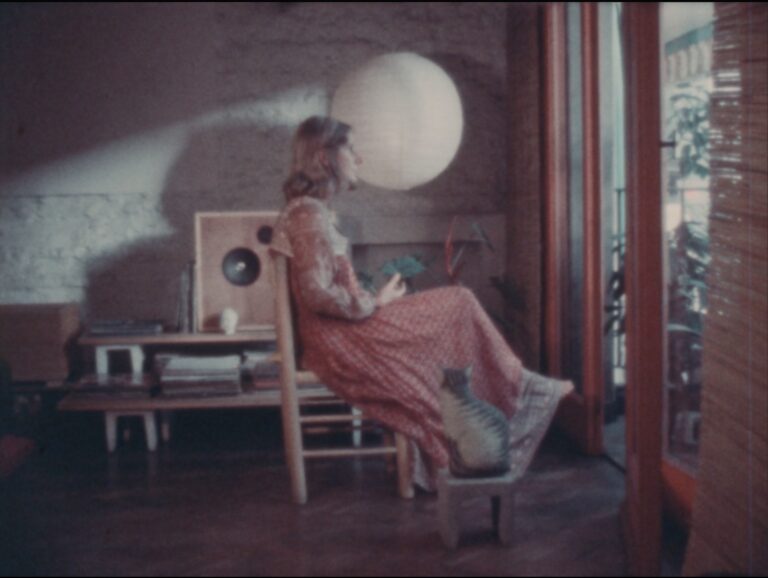
Orfeo y Euridice (1976) by Narcisa Hirsch
Over the music of Orpheus and Euridice by the composer Christoph Willibald Gluck, one can see images of Rafael Maino and Narcisa Hirsch on their travels through Patagonia. (Filmoteca Narcisa Hirsch)
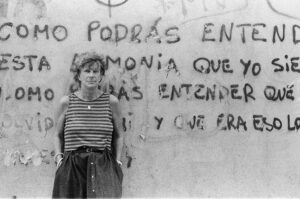 Narcisa Hirsch (1928–2024) was a German/Argentine filmmaker—based in Buenos Aires since 1935.
Narcisa Hirsch (1928–2024) was a German/Argentine filmmaker—based in Buenos Aires since 1935.